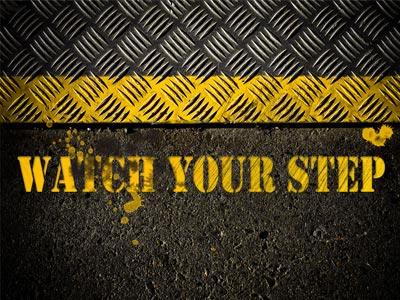-
A Bad Bet
Contributed by Eric Hanson on Aug 9, 2007 (message contributor)
Summary: This message Exposes the folly of organized gambling. It draws from many sources to build the case that the spread of gamblilng establishments is bad for individuals, families, and communities.
A Bad Bet
Organized Gambling
Pastor Eric Hanson
I Timothy 6:9-10 People who want to get rich, fall into temptation and a trap, and into many foolish and harmful desires that plunge men into ruin and destruction. For the love of money is a root of all kinds of evil. Some people, eager for money, have wandered from the faith and pierced themselves with many grieves.
I do not usually speak about what people like to term “social issues” in a Sunday morning message. I hold this down to two or three occasions each year. I prefer to teach the Bible chapter by chapter or share principles from the Bible which people can apply in their private lives. There is an issue, however, which a love for truth and disdain for the actions of those who would prey upon the more vulnerable elements of Maine’s populace compels me to write about today. This is the matter of organized gambling.
God’s word makes it plain that wealth grows through hard work, frugal and wise spending habits, proper investing, generous giving, and the blessing of the Lord. Wealth, in any society, is generated by the production of real goods and real services, which meet real needs. Here are some scriptures, from Proverbs, the Bible’s book of wisdom, which speak to these important realities.
Proverbs 3:1-2 & 9-10, 6:6-11, 8:17-21 (wisdom speaking), 10:4-5 & 22, 11:24-25, 12:11 & 14, 13:11 & 21-22, 14:23 & 26, 18:20, 19:8 & 17, 20:13, 21:5,17,& 20-21, 22:4 & 9, 24:30-34, 28:8, 19-20, 22, 25, & 27.
God has clearly established righteous principles regarding the generation of wealth. These principles create blessing for all who are involved, including the poor of the community who receive gifts, employment, and training in right living.
Gambling establishments can never create wealth. They can only transfer wealth, and they do this very efficiently. They consistently, year in and year out, transfer wealth out of the pockets of millions of regular citizens, and into the pockets of those who run casinos and racinos. The working poor and those on disability are especially hard hit in pursuit of gambling. Here are some telling facts concerning this ongoing problem.
1. Families suffer
-Domestic violence and child abuse increase dramatically when gambling comes into an area. (Maryland attorney general J. Joseph Curran Jr.: “The House Never Loses, and Maryland Cannot Win.)
-In a related development, child protection cases multiplied six-fold in the year after casinos arrived in Central City Colorado (“Win, Lose, or Draw” The Aspen Institute, 1994)
-Harrison County, Mississippi has averaged 500 more divorces per year since Casinos arrived there. (Mississippi Bureau of Public Health Statistics)
2. Addiction
-The number of compulsive gamblers in an area multiplies by anywhere from 100% to 550% when organized gambling comes into an area. (Professor John Warren Kindt writing in the Drake Law Review)
-In Iowa, the number of people with serious gambling problems more than tripled when casinos were introduced. (Rachael A. Volberg: Iowa Department of Human Services)
-Casinos earn more than half their revenues from problem and pathological gamblers.(Earl Grinols: University of Illinois economist)
-In 1995, University of Minnesota researchers discovered that more than half of underage Minnesota youth surveyed had participated in legalized gambling activities.
-Teens are three times as likely as adults to become addicted to gambling once exposed according to Loma Linda University Medical School Professor Durand Jacobs.
-He further points out that at least one in ten teens engages in illegal activity such as stealing, shoplifting, selling drugs, or prostitution, for the purpose of financing their gambling.
3. Crime
-Within three years of the arrival of Casinos in Atlantic City, the crime rate there went from 50th per capita in the U.S. to 1st. (Robert Goodman: Legalized Gambling as a Strategy for Economic Development.)
-The crime rate in gambling communities is nearly double the national average. (U.S. News and World Report analysis: 1996)
-At least two thirds of compulsive gamblers turn to crime to finance their addiction. (Valerie Lorenz: Director of the Compulsive Gambling Center in Los Angeles)
4. Cost to the State
-Each problem gambler costs society (That’s you and Me.) between $13,000 and $52,000 per year. (Robert Goodman: The Luck Business)
-For every dollar a state receives in gambling revenues, it loses three in increased criminal justice, social welfare, and other expenses. (John Warren Kindt giving expert testimony before the U.S. House of Representatives committee on small business)
-Counties that added gambling in the 1990s experienced no additional growth in new business. (U.S. News and World Report analysis)
5. Victimization of the poor
-The poor and minorities are more prone to gambling problems than others are. (Henry R. Lesieur “Compulsive Gambling” Society magazine May-June, 1992)
-More than 1000 Minnesotans file for bankruptcy each year as a result of gambling losses. (Chris Ison: “Dead Broke” Star Tribune December 5, 1995)

 Sermon Central
Sermon Central



